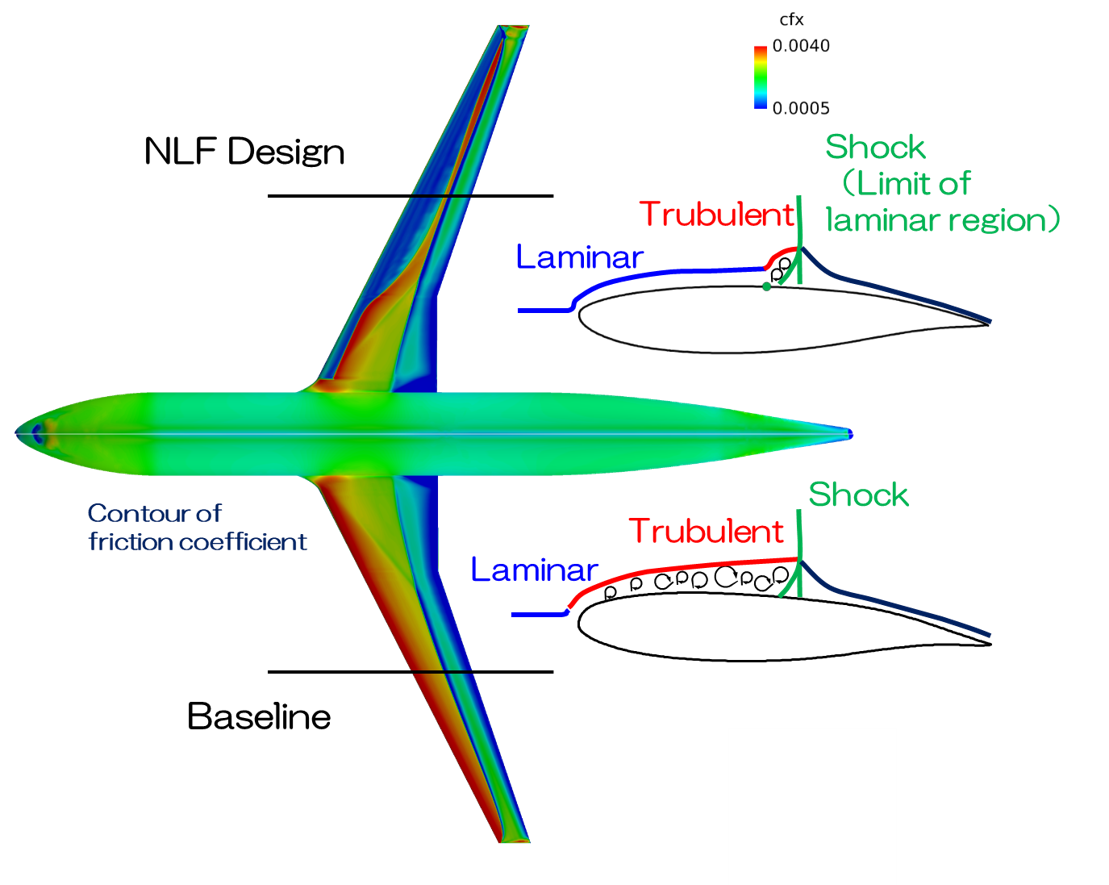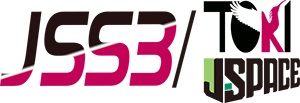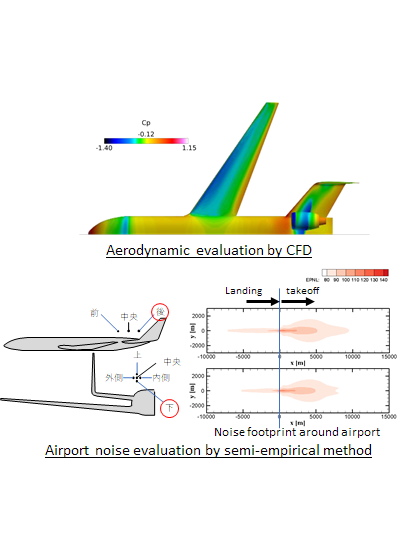Environment Conscious Aircraft Systems Research in Eco-wing Technology
JAXA Supercomputer System Annual Report April 2018-March 2019
Report Number: R18ETET15
Subject Category: Skills Acquisition System
- Responsible Representative: Yoshikazu Makino, Aeronautical Technology Directorate, Aviation Systems Research Unit
- Contact Information: Dongyoun Kwak, Aviation Systems Research Unit(kwak.dongyoun@jaxa.jp)
- Members: Shuhei Kondo, Naoto Yuri, Dongyoun Kwak, Kenji Ishizuki, Shoya Ogino, Christian Nauck, Mitsuhiro Murayama, Yasushi Ito, Ryotaro Sakai, Thomas Schilden
Abstract
Innovative drag reduction technologies are investigated to reduce the fuel consumption for a conventional aircraft configuration. Aircraft noise prediction technologies and the conceptual design technologies are also developed for future aircraft which achieve low noise and high efficiency.
Reference URL
Please refer to ‘Eco-wing technology | ECAT – Environment-Conscious Aircraft Technology Program | Aeronautical Technology Directorate‘.
Reasons for using JSS2
CFD analysis are used for the understanding of aerodynamic characteristics and evaluation of the performance in the aircraft design phase. Huge calculation resources and costs were required for the high fidelity and quick response CFD analysis for the optimum aerodynamic design process on complex aircraft geometry. JSS2 can achieve those requirements, the cost and time are drastically saved on the CFD analysis.
Achievements of the Year
The natural laminar wing design was performed on 120pax subsonic aircraft (Technology reference aircraft; TRA2022) to reduce the friction drag on the cruise flight condition. Wide area of the laminar flow was achieved until just upstream of the shock occurrence at the outboard wing(Fig.1). The aerodynamic performance of an unconventional low-noise aircraft with engines mounted over the rear-fuselage was evaluated by CFD. The initial evaluation to investigate the influence of engine locations on the aerodynamic performance and noise level was conducted (Fig. 2).

Fig.1: Surface friction coefficient distributions by Natural laminar flow design on a 120pax subsonic aircraft(TRA2022).
Publications
N/A
Usage of JSS2
Computational Information
- Process Parallelization Methods: MPI
- Thread Parallelization Methods: OpenMP
- Number of Processes: 128 – 256
- Elapsed Time per Case: 25 Hour(s)
Resources Used
Fraction of Usage in Total Resources*1(%): 0.28
Details
Please refer to System Configuration of JSS2 for the system configuration and major specifications of JSS2.
| System Name | Amount of Core Time(core x hours) | Fraction of Usage*2(%) |
|---|---|---|
| SORA-MA | 1,916,187.21 | 0.23 |
| SORA-PP | 29,121.54 | 0.23 |
| SORA-LM | 920.48 | 0.43 |
| SORA-TPP | 0.00 | 0.00 |
| File System Name | Storage Assigned(GiB) | Fraction of Usage*2(%) |
|---|---|---|
| /home | 1,561.60 | 1.62 |
| /data | 47,752.54 | 0.84 |
| /ltmp | 22,854.29 | 1.96 |
| Archiver Name | Storage Used(TiB) | Fraction of Usage*2(%) |
|---|---|---|
| J-SPACE | 68.57 | 2.40 |
*1: Fraction of Usage in Total Resources: Weighted average of three resource types (Computing, File System, and Archiver).
*2: Fraction of Usage:Percentage of usage relative to each resource used in one year.
JAXA Supercomputer System Annual Report April 2018-March 2019



